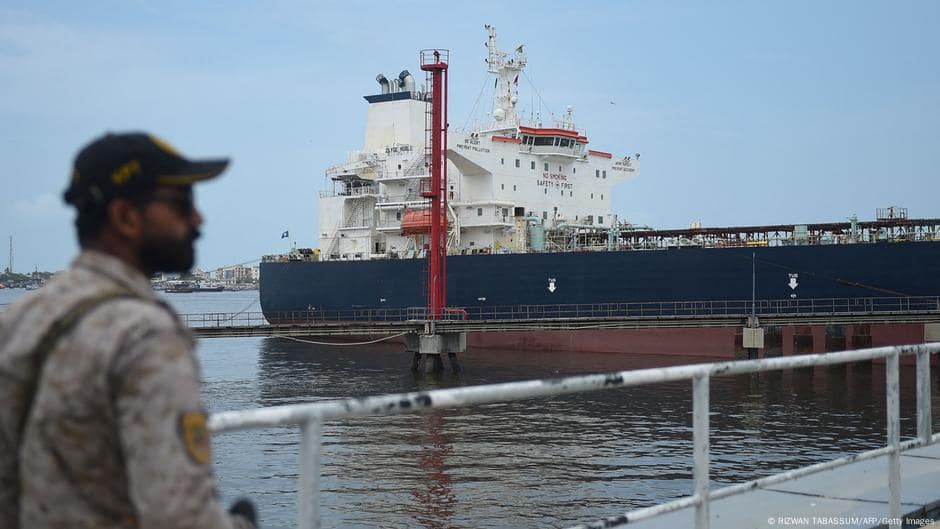Strengthening US-Pakistan Ties Through Energy and Trade
In a move that signals a shift in the dynamics of US-Pakistan relations, both countries have taken steps to deepen their cooperation in energy and trade. While Pakistan may not possess the vast oil reserves that former President Donald Trump once described, the recent agreements mark an important development in their strategic partnership.
A New Era of Cooperation
The US and Pakistan have recently announced a new agreement for the joint development of Pakistan’s oil reserves, which Trump highlighted as a significant step toward a long-term energy partnership. Although the exact nature of these “massive” reserves remains unclear, the deal reflects a growing interest from Washington in strengthening economic ties with Islamabad.
This initiative comes alongside a broader trade agreement between the two nations, which includes a reduction in the tariff rate on Pakistani imports to the US. The new rate of 19% is lower than the previous 29%, signaling a more favorable trade environment for Pakistan. This change has been welcomed by Pakistan’s government, which sees it as a positive step toward enhanced economic collaboration.
Economic Collaboration Across Sectors
Pakistan’s Finance Ministry has emphasized that the trade agreement marks the beginning of a new era of economic collaboration, particularly in sectors such as energy, mines and minerals, IT, and cryptocurrency. The agreement is seen as a milestone in bilateral relations, with Prime Minister Shehbaz Sharif describing it as a “landmark deal.”
The reduced tariff rate also positions Pakistan more favorably compared to its regional rival, India, which faces a 25% import tax. Trump even made a light-hearted comment about the possibility of India eventually purchasing oil from Pakistan, highlighting the shifting geopolitical landscape.
Oil Imports and Exploration Efforts
Despite the focus on developing domestic oil reserves, Pakistan continues to rely heavily on imported oil, with nearly 20% of its total import bill dedicated to this resource. However, recent developments indicate that the country is exploring new avenues for energy security.
For instance, Pakistan’s largest oil refiner, Cnergyico, has announced plans to import 1 million barrels of US crude oil in October via Vitol, a Dutch trading company. This move underscores the potential for increased trade between the two nations, even if it is currently focused on imports rather than exports.
Efforts to explore offshore oil reserves in the Indus basin have faced challenges, with estimates of proven recoverable conventional crude oil ranging from 234 million to 353 million barrels. These figures place Pakistan around 50th in global rankings, indicating that the country still has significant room for growth in this area.
Balochistan: A Region of Strategic Importance
Balochistan, a province rich in untapped resources, is central to Pakistan’s energy ambitions. However, the region is also a hub for armed insurgent movements, which pose serious security challenges. Insurgents often view resource extraction as a form of exploitation, leading to frequent attacks on infrastructure projects.
Experts suggest that the involvement of American companies in Balochistan could potentially reduce the intensity of the insurgency, as diminished support for these groups may lead to a decline in their activities. However, the success of such efforts depends on the establishment of confirmed reserves and the necessary infrastructure.
Geopolitical Implications
The US has strategic interests in Balochistan due to its proximity to Iran and Afghanistan. Washington views the region as a potential monitoring point for Iranian activities, especially given the ongoing tensions surrounding Iran’s nuclear program. Additionally, the agreement aims to reduce Pakistan’s growing reliance on China, which has invested heavily in the country through initiatives like the China-Pakistan Economic Corridor (CPEC).
While Chinese investments in energy and mineral sectors present a challenge to US companies, experts believe that the relationship between Pakistan and China remains strong, and any competition could be managed diplomatically.
A Delicate Balance
Security expert Qamar Cheema notes that Pakistan relies on China for military equipment and on the US for macroeconomic stability, particularly through the IMF. The recent agreement is likely to strengthen the economic partnership between the two nations, while also offering the US an alternative ally in the region.
As both countries navigate this complex landscape, the future of their relationship will depend on how effectively they can balance economic interests, security concerns, and geopolitical strategies.

